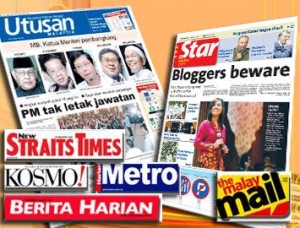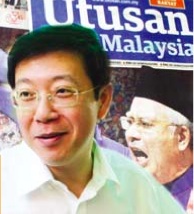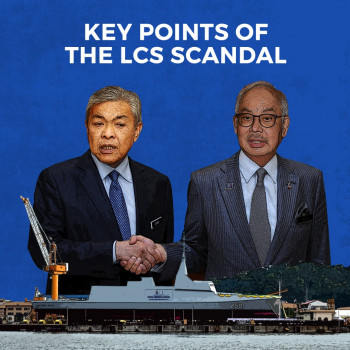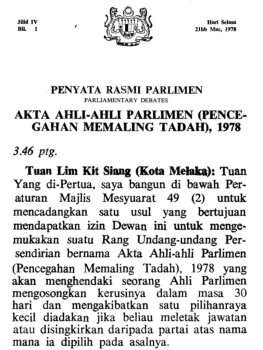By Chung Hosanna
 “People nowadays don’t read anymore,” has become newspaper vendors’ constant complaint. Traditional media, especially historically popular mainstream newspapers, are suffering from declining circulation numbers as readers increasingly turn to internet and alternative media as news sources. Trends show that readers are abandoning the mainstream perceived as a tool of the ruling government, prone to censoring the truth and biased reporting.
“People nowadays don’t read anymore,” has become newspaper vendors’ constant complaint. Traditional media, especially historically popular mainstream newspapers, are suffering from declining circulation numbers as readers increasingly turn to internet and alternative media as news sources. Trends show that readers are abandoning the mainstream perceived as a tool of the ruling government, prone to censoring the truth and biased reporting.
Figures from the Audit Bureau of Circulations (ABC) show that during the period 2005 to 2009, The Star’s circulation dropped from 310,000 to 287,000 (-7.4 per cent), the New Straits Times from 139,000 to 111,000 (-20 per cent), Utusan Malaysia from 213,000 to 169,000 (-21 per cent) and Berita Harian from 204,000 to 155,000 (-24 per cent).
Sin Chew, however, saw circulation rise from 324,000 to 382,000 (+18 per cent).
Losing its appeal
Most newspapers have been reduced to party organ status, with MCA’s clear cut 42.4 control of The Star, UMNO’s 49.77 stake in Utusan, four main Chinese language dailies owned by former SUPP senator Tiong Thai King, and the various Tamil dailies being owned by MIC leaders.
Economic ownership has direct bearing on the content and independence of the newspapers, with many editorial decisions being overruled by ‘higher’ political directives. Selective reportage with favourable coverage towards the ruling government is not a mere perception, but an actual directive by the Information Minister Rais Yatim (Bernama, April 2010).
Meanwhile, opposition politicians are always portrayed in a negative light, with their alleged shortcomings exaggerated, misquoted, or downright concocted. The mounting number of defamation cases by opposition figures against MSM newspapers proves this (see box).
Dwindling circulation is the clearest expression of falling readership, as the frustrated public turns to the internet as a more transparent and quick source of information. Hardest hit is New Straits Times, which has to resort to bulk sales to stay afloat, besides relying on revenue from its more profitable Malay language sister publication in the NSTP stable. The Star was still boosted by its thick advertisement pages to mask its partisan coverage and outrageous spin. The Malaysian Insider reports that advertisers spent RM1.836 billion on newsprint-based media in the first six months of 2012.
Internet a game-changer
High internet penetration and recent affordability of smart phone devices have turned readers increasingly-savvy as they seek fresh voices and updated news to match their on-the-go lifestyle.
The ever-growing array of blogs, citizen journalist websites, and alternative news has whetted the appetites and raised the bar for discerning readers. Live coverage, instant photos, interactive opportunities for readers, and free reading are just some of the advantages internet has over conventional printed media. This is besides the perception that online media is freer, fairer, and faster.
Social media too is an impetus for changing the media landscape, as live tweets, facebook pages, and even instagram offering more variety and diversity in terms of methods to present information. These alternative sources are gaining ‘street cred’ in the eyes of readers as it is uncensored, contains ‘juicy’ bits left out in MSM sources, and presents a fuller picture of events.
Shameless distortion, endless lies
In December 2012, Kosmo and Siasah ran an article that Malays would be in danger if DAP-controlled PKR ruled Malaysia, alleging that the royal institutions, Royal Malay Regiment of the armed forces, and Malay assistance programs would be dissolved.
In May 2012, Astro censored the BBC news report on the Bersih 3.0 rally it aired in a bid “to comply with the national content regulations”.
The same month, NST deliberately distorted words used by Australian Senator Nick Xenophon to refer to Scientology and Islam, labeling him “anti-Islamic”.
In July 2011, KDN censors blacked out a portion of an article in The Economist which called Prime Minister Najib Razak’s handling of the Bersih 2.0 rally “overzealous”. – The Rocket
Read the second part of our media monopoly series here:
A matter of honor
As demonstrated in Singapore, defamation has been a useful tool for politicians to silence vocal opponents and inconvenient journalists. However, the tool works both ways. Many local opposition politicians have taken to lawsuits to clear their names against governmental mouthpieces MSM.

Karpal Singh vs Utusan Malaysia – Utusan lost
In December 2012, the DAP Chairman won RM50,000 in damages against Utusan for an article published on the eve of the Permatang Pauh by-election. The judged ruled that the article titled “DAP diingat jangan bakar perasan orang Melayu” had implied that Kapral rejected Islam as the official religion of the country.
P. Ramasamy vs The Star – settled out of court
In February 2012, the Penang Deputy Chief Minister filed a suit against the newspaper for an article titled “Distress in DAP Continues”. The case was settled out of court.
Teresa Kok vs Mingguan Malaysia – Mingguan Malaysia apologised
As part of the terms of an out of court settlement, Mingguan Malaysia read out an apology to the DAP Vice President for a short story published titled “Politic Baru YB J”. The statement of claim stated that the article was in direct reference to Kok and that it was defamatory and libelous.
Nizar Jamaluddin vs Utusan Malaysia – ongoing
In August 2012, Utusan was found liable of defaming former the Perak Menteri Besar over his Twitter remarks about the WWW1 car registration number controversy. Nizar in his claim alleged that the article implied that he is a traitor to the Malay rulers. The judgement in default was later set aside and the case is currently on trial.
Lim Guan Eng vs Utusan Malaysia (2) – Utusan lost
June 2012: In the second win in six months, the court awarded RM200,000 in damages to the DAP Secretary General for an Utusan article titled “Tiada Lagi DEB”. The judge ruled there was malice when the newspaper published something that Lim had not said during a press conference.
Lim Guan Eng vs Utusan Malaysia (3) – Utusan lost
In December 2011 Utusan was ordered to pay RM200,000 to Lim for defaming him in an article titled “Kebiadaban Guan Eng”. The judge found that the article was malicious, had intention to mislead readers and was written in bad faith.




Pingback: The Rocket — Is Malaysian media being monopolised by cronies?